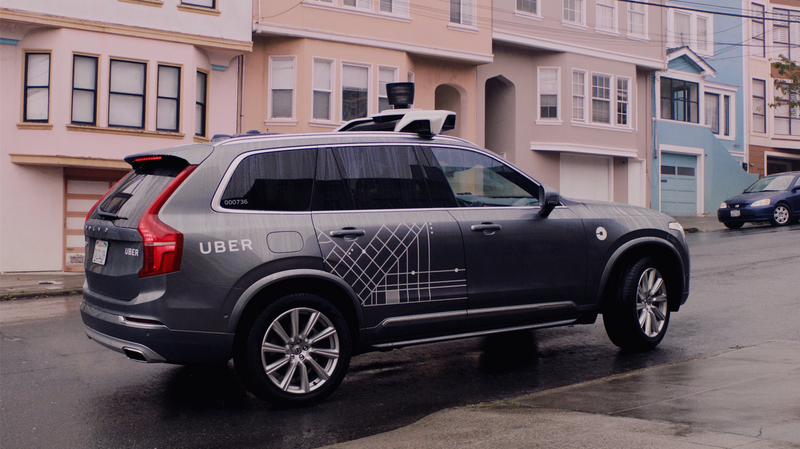
In less than a day this past week, Uber launched its “self-driving” ride-hailing service on the streets of San Francisco and got orders from California regulators to shut it down. And in the pettiest story development there is, the Verge reports that Uber refuses to apply for a $150 permit in order to run the cars legally.
Advertisement
Uber’s San Francisco program did get to make some news before California said to shut things down, at least. The service started on Wednesday, and it appeared that a member of Uber’s “self-driving” fleet blew through a red light that same day. Uber denied the vehicle being part of the program and blamed the running of the light on human error.
But Uber has bigger conflicts to deal with. The “self-driving” reference is in quotations because the cars aren’t fully self driving, though that’s how Uber describes them. Each “self-driving” car has a driver in the seat, ready to take over when necessary. On the surface, that does not sound like full autonomy, but rather a higher-level driver-assistance system such as Tesla’s Autopilot.
Advertisement
That, as ironic as it is, is the reason that Uber will stingily hold onto its $150. Because Uber’s self-driving vehicles aren’t fully autonomous—or, dare we say, fully “self driving”—the company refuses to pay for the California permit to test autonomous vehicles, which California regulators say it needs to do.
From a statement by Uber’s vice president of advanced technologies, Anthony Levandowski:
The regulations apply to “autonomous vehicles”. And autonomous vehicles are defined as cars equipped with technology that can — and I quote — “drive a vehicle without the active physical control or monitoring by a human operator.” But the self-driving Ubers that we have in both San Francisco and Pittsburgh today are not capable of driving “without … active physical control or monitoring”.
The Verge reports that 20 companies, including Tesla, Mercedes-Benz, Google and even the potential disaster known as Faraday Future, all have the permit necessary to test their autonomous cars in California. The full list of companies with the permit can be found on the California Department of Motor Vehicles website.
Sponsored
The difference between those companies and Uber, in Uber’s eyes, is that the other companies are testing fully autonomous technology. But Uber said in an announcement that the “self-driving” pilot program will allow the company “to continue to improve our technology through real-world operations.”
That makes the pilot program sound less like a higher-level driver-assistance system and more like testing and development for autonomous cars, which is exactly what those permitted companies are doing. Apparently, the California regulators think so, too.
Advertisement
Advertisement
Uber’s “human behind the wheel” argument doesn’t really hold up, either. The letter sent to Uber by the California DMV cites Article 3.7 on the California Code of Regulations, which clearly states this as a requirement for the autonomous-testing permit on the second page of the regulations:
(b) The vehicle is operated by an autonomous vehicle test driver who is an employee, contractor, or designee of the manufacturer, who has been certified by the manufacturer to the department as competent to operate the vehicle and has been authorized by the manufacturer to operate the vehicle.
Well, yeah, that sounds like what Uber is doing. But Uber argues that the car isn’t fully autonomous, so perhaps a shift away from calling these things “self driving” could clear some of this conflict up. From Levandowski’s statement:
It’s hard to understand why the DMV would seek to require self-driving Ubers to get permits when it accepts that Tesla’s autopilot technology does not need them. We asked for clarification as to specifically what is different about our tech from the DMV, but have not received it.
Nor is it clear why the DMV is requiring that we apply for a permit now, when they’ve known that self-driving Ubers have been on the streets of San Francisco over a month? We have been safely driving self-driving Ubers in the same manner in Pittsburgh for months, where policymakers and regulators are supportive of our efforts.
There are faults in both arguments, sure, but $150 is pocket change to a large company. It’s less than pocket change, actually. It’s completely insignificant.
Advertisement
So, why make such a fuss about it? Maybe it’s just the principle of the thing.
















